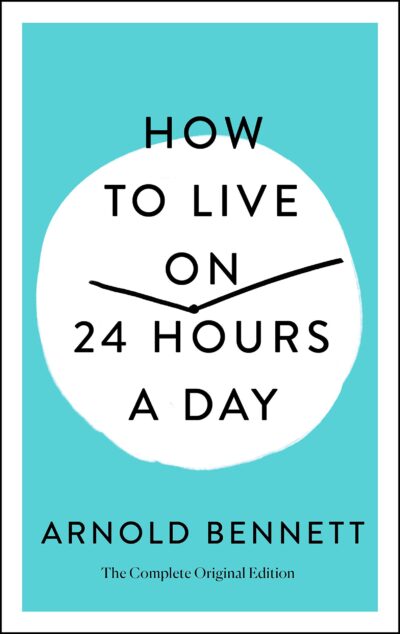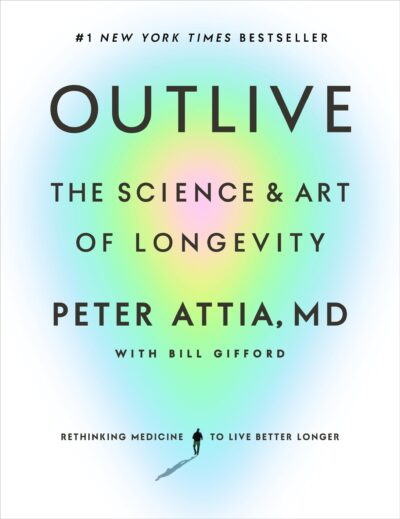68 Results with the "Self-help" genre
Adventure Fiction (1164)
Biography (435)
Business & Finance (1)
Children's Literature (124)
Comics (6)
Culture (51)
Drama (123)
Dystopian (29)
Fable (86)
Fantasy (1132)
Fantasy (203)
Fiction (1010)
Finance (1)
Gothic Fiction (12)
Historical Fiction (615)
History (122)
Horror (56)
Lifestyle (36)
Literary (404)
Literary Fiction (207)
Memoir (113)
Mystery (422)
Non-fiction (87)
Novel (549)
Paranormal Fiction (96)
Philosophical (182)
Philosophy (45)
Poetry (249)
Political Fiction (14)
Politics (42)
Practical (32)
Psychological (4)
Psychological Thriller (108)
Relationship (6)
Romance Novel (716)
Romantic Melodrama (14)
Satire (91)
Science (46)
Science Fiction (345)
Society (65)
Society (2)
Spiritual Growth (1)
story (2)
Thriller (704)
True Crime (56)
view (11)
Women's Fiction (2)
Young Adult (233)
-
 Chapter 4: Running for Your Life: The Anatomy of Survival. Survival is the core function of the human brain, and understanding the mechanisms behind how it protects us during times of danger is vital to understanding trauma. The brain operates with intricate systems designed to ensure our protection in life-threatening situations, triggering automatic responses that prioritize safety. From the moment danger is sensed, the brain activates a series of responses to help us react appropriately, often before we…
Chapter 4: Running for Your Life: The Anatomy of Survival. Survival is the core function of the human brain, and understanding the mechanisms behind how it protects us during times of danger is vital to understanding trauma. The brain operates with intricate systems designed to ensure our protection in life-threatening situations, triggering automatic responses that prioritize safety. From the moment danger is sensed, the brain activates a series of responses to help us react appropriately, often before we…-
360.1 K • Ongoing
-
-
 How to Live on 24 Hours a Day by Arnold Bennett is a practical and motivational book that encourages readers to make the most of their time. Written in 1910, the book offers timeless advice on how to use the 24 hours we all have each day to enrich our lives. Bennett argues that by dedicating even a small portion of our day to self-improvement—through reading, learning, or reflecting—we can achieve personal growth and fulfillment. Blending wit, wisdom, and actionable suggestions, the book inspires readers to rethink their daily routines and invest in their intellectual and spiritual well-being.
How to Live on 24 Hours a Day by Arnold Bennett is a practical and motivational book that encourages readers to make the most of their time. Written in 1910, the book offers timeless advice on how to use the 24 hours we all have each day to enrich our lives. Bennett argues that by dedicating even a small portion of our day to self-improvement—through reading, learning, or reflecting—we can achieve personal growth and fulfillment. Blending wit, wisdom, and actionable suggestions, the book inspires readers to rethink their daily routines and invest in their intellectual and spiritual well-being.-
4.7 K • Nov 8, '24
-
4.8 K • Nov 8, '24
-
4.2 K • Nov 8, '24
-
-
 Chapter 15: Letting Go of the Past: EMDR (Eye Movement Desensitization and Reprocessing) is a therapeutic approach that helps individuals process and release trauma that continues to impact their present lives. It works by using bilateral stimulation, often through eye movements, to access traumatic memories, and encourage the brain to reframe them. The process helps to integrate these memories in a way that allows individuals to view their trauma as something that happened in the past, rather than…
Chapter 15: Letting Go of the Past: EMDR (Eye Movement Desensitization and Reprocessing) is a therapeutic approach that helps individuals process and release trauma that continues to impact their present lives. It works by using bilateral stimulation, often through eye movements, to access traumatic memories, and encourage the brain to reframe them. The process helps to integrate these memories in a way that allows individuals to view their trauma as something that happened in the past, rather than…-
360.1 K • Ongoing
-
-
 Chapter 17 underlines the importance of treating emotional and mental well-being with the same seriousness as physical health. Seeking assistance for psychological struggles is not a flaw but a responsible choice that fosters recovery. Many individuals hesitate to address their mental state due to societal misconceptions, yet disregarding emotional distress can be as detrimental as neglecting a severe physical condition. Emotional challenges arise from multiple sources, including inherited traits, past…
Chapter 17 underlines the importance of treating emotional and mental well-being with the same seriousness as physical health. Seeking assistance for psychological struggles is not a flaw but a responsible choice that fosters recovery. Many individuals hesitate to address their mental state due to societal misconceptions, yet disregarding emotional distress can be as detrimental as neglecting a severe physical condition. Emotional challenges arise from multiple sources, including inherited traits, past…-
87.7 K • Ongoing
-
-
 Chapter X begins with a reminder that nothing in life is ever truly mundane when examined with curiosity and depth. What might seem ordinary at first glance often reveals complex systems of causes and consequences when looked at closely. Understanding how things come to be—why certain patterns emerge, why people behave in specific ways, or why social shifts occur—turns routine observations into rich mental exercises. By embracing the interconnectedness of life events, even the smallest detail gains new…
Chapter X begins with a reminder that nothing in life is ever truly mundane when examined with curiosity and depth. What might seem ordinary at first glance often reveals complex systems of causes and consequences when looked at closely. Understanding how things come to be—why certain patterns emerge, why people behave in specific ways, or why social shifts occur—turns routine observations into rich mental exercises. By embracing the interconnectedness of life events, even the smallest detail gains new…-
62.8 K • Ongoing
-
-
Chapter
INDEX
 INDEX The page numbers in this index refer to the printed version of this book. To find the corresponding locations in the text of this digital version, please use the “search” function on your e-reader. Note that not all terms may be searchable. Page numbers in italics refer to illustrations. abandonment, 140, 141, 150, 179, 301, 304, 327, 340, 350 Abilify, 37, 101, 226 ACE (Adverse Childhood Experiences) study, 85, 144–48, 156, 347, 350–51 acetylcholine, 266 acupressure, 264–65,…
INDEX The page numbers in this index refer to the printed version of this book. To find the corresponding locations in the text of this digital version, please use the “search” function on your e-reader. Note that not all terms may be searchable. Page numbers in italics refer to illustrations. abandonment, 140, 141, 150, 179, 301, 304, 327, 340, 350 Abilify, 37, 101, 226 ACE (Adverse Childhood Experiences) study, 85, 144–48, 156, 347, 350–51 acetylcholine, 266 acupressure, 264–65,…-
360.1 K • Ongoing
-
-
 Chapter 5: Body-Brain Connections, the intricate relationship between the body and mind has been a subject of scientific study for centuries. Early thinkers like Charles Darwin recognized that emotional expressions were not just mental states but were deeply intertwined with our physical selves. This concept is still valid today, as we understand more about how our bodies react to emotional stimuli and how these reactions shape our overall mental health. Darwin’s observations in The Expression of the…
Chapter 5: Body-Brain Connections, the intricate relationship between the body and mind has been a subject of scientific study for centuries. Early thinkers like Charles Darwin recognized that emotional expressions were not just mental states but were deeply intertwined with our physical selves. This concept is still valid today, as we understand more about how our bodies react to emotional stimuli and how these reactions shape our overall mental health. Darwin’s observations in The Expression of the…-
360.1 K • Ongoing
-
-
Chapter
Introduction
 Introduction to the narrator’s journey begins with a recurring dream that captures his feelings of inadequacy and helplessness, where he attempts to catch falling eggs on a city sidewalk—an endeavor that symbolizes his relentless but futile attempts to save patients during his surgical training at Johns Hopkins Hospital. The dream unfolds with him chasing after the eggs, which represent his efforts to intervene and save lives, but despite his best efforts, every egg shatters upon hitting the ground.…
Introduction to the narrator’s journey begins with a recurring dream that captures his feelings of inadequacy and helplessness, where he attempts to catch falling eggs on a city sidewalk—an endeavor that symbolizes his relentless but futile attempts to save patients during his surgical training at Johns Hopkins Hospital. The dream unfolds with him chasing after the eggs, which represent his efforts to intervene and save lives, but despite his best efforts, every egg shatters upon hitting the ground.…-
87.7 K • Ongoing
-
-
Chapter
Preface to This Edition
 Preface opens with the author responding to the reactions his earlier writing received—some lighthearted, others deeply sincere. While a few accused the tone of his work of being too casual, this was not the critique that stayed with him. What struck him were the letters from earnest readers who firmly disagreed with his view that most people do not pour themselves fully into their work. These readers insisted that their jobs were meaningful and that they gave all they had to their professional roles.…
Preface opens with the author responding to the reactions his earlier writing received—some lighthearted, others deeply sincere. While a few accused the tone of his work of being too casual, this was not the critique that stayed with him. What struck him were the letters from earnest readers who firmly disagreed with his view that most people do not pour themselves fully into their work. These readers insisted that their jobs were meaningful and that they gave all they had to their professional roles.…-
62.8 K • Ongoing
-
- 1 2 … 7 Next
